In 1967, the Denver Organizing Committee (DOC) for the 1976 Winter Olympics was formed. The United States Olympic Committee (USOC) chose Denver, Colorado, as its official candidate for the 1976 Winter Olympics bid. Other contenders included Lake Placid, New York; Salt Lake City, Utah; and Seattle, Washington.
Speakers at a Colorado State Legislative Committee meeting in March 1971 asserted economic and environmental objections to Colorado hosting the Games. The Denver Organizing Committee (DOC) interpreted these comments to be directed towards the location of events in particular communities—not to the Olympics as a whole.
By 1972, several Olympic events were relocated. The alpine events site was moved from Loveland Basin and Mount Sniktau to Vail, and Nordic, bobsled and luge events were relocated from Denver Mountain Parks to Steamboat Springs. The distance from Denver to the new sites was greater, but the DOC believed buses, trains and air transportation would be effective in getting athletes, coaches, judges, spectators and members of the press to these locations.
As projected costs to host the Games rose, public concern escalated. Representative Richard Lamm led a group to organize a referendum to deny Colorado Olympic funding for the November 1972 ballot. On November 7, 1972, Colorado voters, concerned about the financial burden and environmental impact of the Olympic Games on their state, approved Amendment 8, the Colorado Winter Olympic Games Funding and Tax Amendment. This amendment prohibited the state from levying taxes and appropriating or loaning funds for the 1976 Winter Olympic Games.
Want to learn more? See the following resources located in the DPL's Western History and Genealogy Department:
- The Denver Winter Olympics Controversy by Rick Reese
- Fire on the Mountain: Growth and Conflict in Colorado Ski Country by Michael Wayne Childers (dissertation)
- Clipping file (Olympic Games. Winter. 1976. Denver United States Candidate For The Xii Winter Olympic Games)
- Newspaper articles (available on microfilm)
- Denver Organizing Committee for the 1976 Winter Olympics Records, 1967-1976 (WH1143)
- Citizens for Colorado's Future Records, 1971-1972 (-M881)
- Published plans and reports related to the 1976 Winter Olympic Games in Colorado
- 1976 Denver Olympic promotional film (from the Denver Chamber of Commerce Records, WH1216)
Like what you're reading? Like the Western History and Genealogy Department on Facebook!

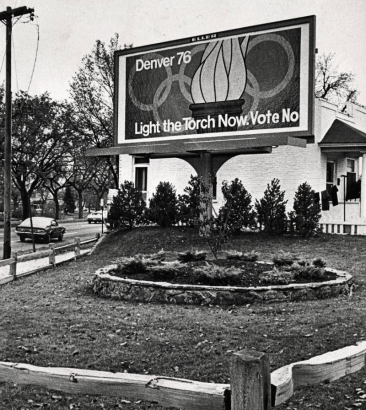
![Melvin J. Roberts, right, president of the Denver Clearing House Assn., holds up a copy of the Denver Olympic Committee's presentation book, used to win the United States competition. Roberts was presented with [the] book by Thomas Hildt, Jr., vice-president of finance for the Denver Olympic Committee, after receiving a check for $10,000 as This year's contribution from the assn. The money will be used in the DOC's 1968 budget for promotional expenses to win international designation for 1976 Winter games.](/sites/history/files/styles/blog_image/public/cdm_92925.jpg?itok=HaiOFh57)
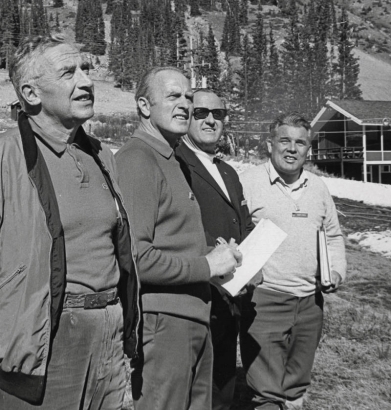
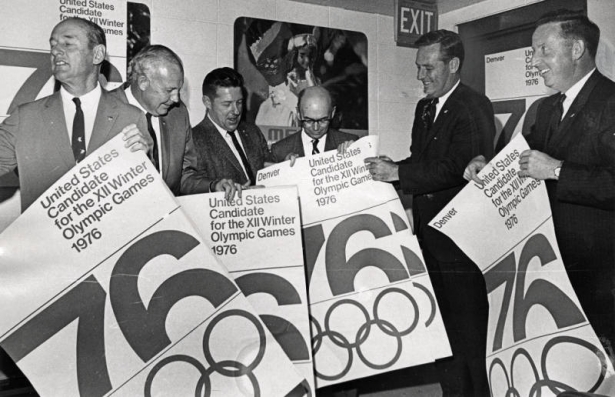
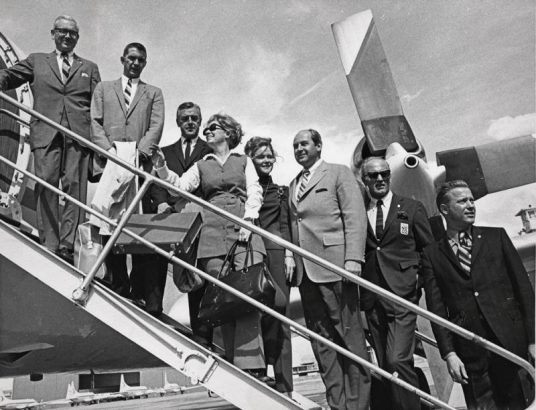
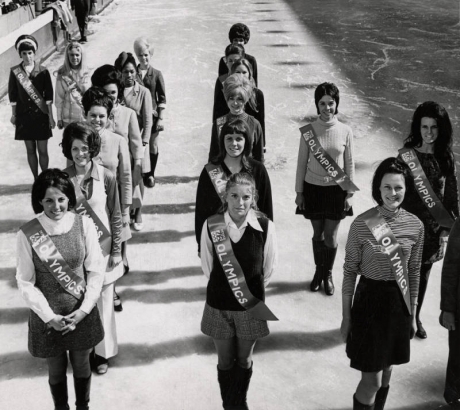
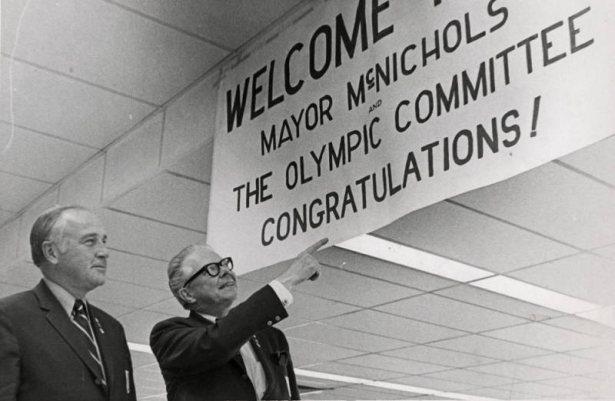

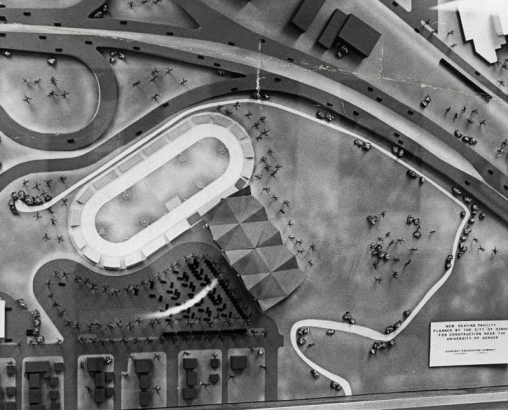
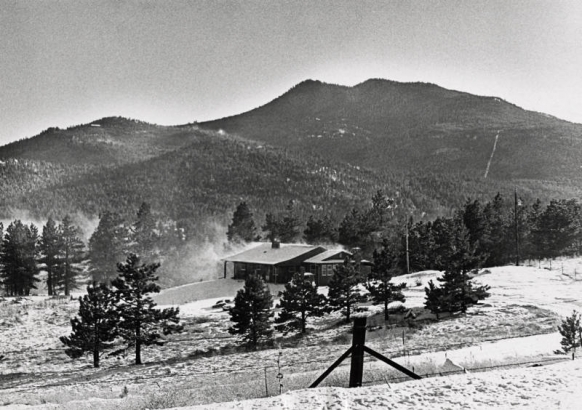
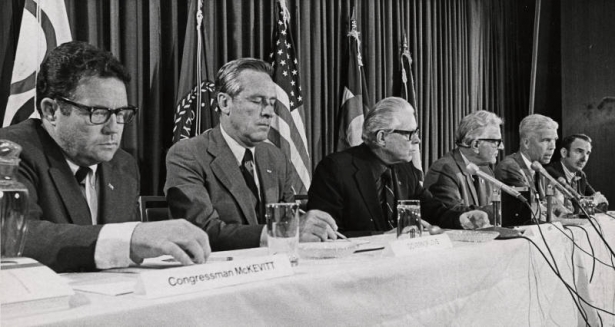
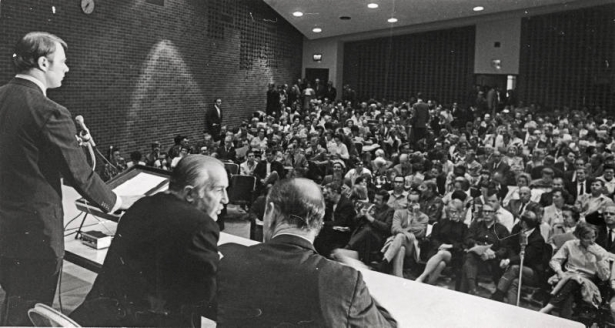
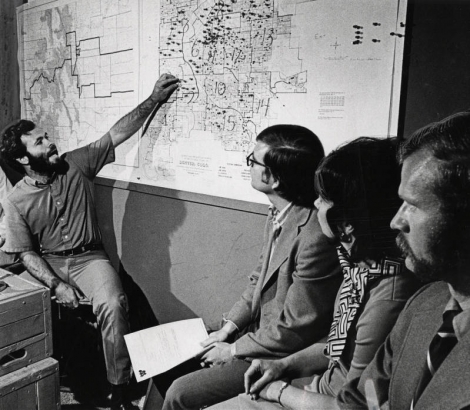
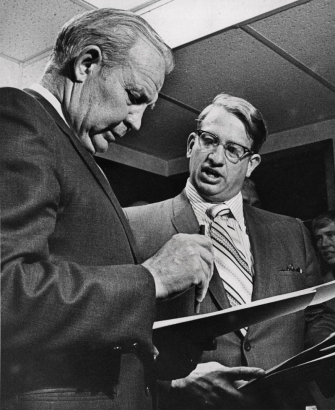
Comments
I remember reading that the
I remember reading that the organizers planned to have parking on Evergreen Lake, which they assumed would be frozen solid enough. Many car owners would probably have found their cars at the bottom of the lake had this been implemented. This was typical of the overly-optimistic assumptions--logisical and financial--made in the planning of the games and Colorado voters used common sense in declining the "opportunity" of hosting them.
Thanks for sharing, Jude!
Thanks for sharing, Jude!
I voted against the '76
I voted against the '76 Olympics for many of the reasons stated above. I was a young voter, and I thought it was so important that the citizens got the chance to have their say. I hope we do this time as well.
Thanks for reading and
Thanks for reading and commenting, Carol!
There are far more pressing
There are far more pressing decisions facing Denver and Colorado that need attention, the Olympics is not one of them.
Thanks for reading, George!
Thanks for reading, George!
This is confusing, so was the
This is confusing, so was the referendum a bond issue? Was it measure 8 that defeated the Olympics or the bond vote, or a combination of both?
Thanks for your question,
Thanks for your question, Miguel. I will update the language of this post to make it more clear. Simply put, yes - Amendment 8 (the Colorado Winter Olympic Games Funding and Tax Amendment) was the measure that defeated the Olympics. This measure prohibited the state from levying taxes and appropriating or loaning funds for the 1976 Winter Olympic Games. Voters approved the measure, and this meant that the $5-million bond needed to fund the games (a supplement to federal funds) could not move forward.
Add new comment